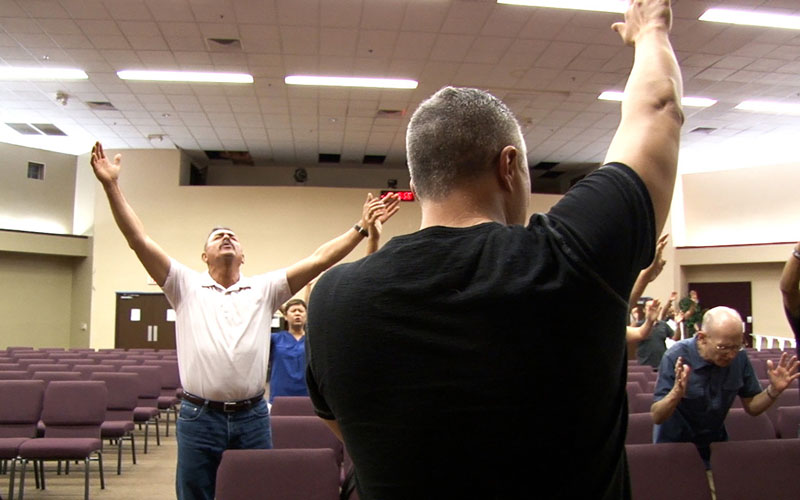As more Hispanics join evangelical and Pentecostal churches, they’re reshaping Arizona’s religious landscape.
“I would probably say at least two-thirds of our congregation is Spanish speaking,” said Maurice Chavez, pastor of Phoenix World Outreach.
The second-generation pastor started preaching at age 16.
“I grew up in church all my life. My father was studying to be a priest in Waupaca, Wisconsin, when he converted to Christianity,” Chavez said.
Many of in his congregation are also former Catholics.
“They all come from different Spanish speaking areas — Panamá, Honduras, Guatemala, Puerto Rico, Cuba, but mainly Mexican,” Chavez said. “They just kind of found their way here.”
On Wednesday evenings, Chavez leads an animated bilingual Bible study group. He did not grow up speaking Spanish but learned as an adult in order to meet the needs of his growing congregation.
There are about 225 Assemblies of God churches in Arizona, including Phoenix World Outreach, where about 500 people attend services weekly.
“This is my family, it’s my family here,” said Manuel Mondaca, 58, a landscape worker.
The father of four is originally from Sinaloa, Mexico. He is a former Catholic who joined the Pentecostal church 11 years ago. Others are newcomers.
“I felt love, and I felt freedom here,” she said. “You can see how the Lord is bringing me to different levels,” said Lourdes Johnson, a native of Ciudad Obregon, Mexico.
Johnson grew up Catholic but at 23 began searching for a new spiritual home and attending services at several evangelical churches.
“A lot of them are done with prayers, rituals and traditions they were raised to see, and they wanted more of a God that’s relational, that they could connect with,” said Chavez. “Pentecostal churches, evangelical Hispanic churches really focus on developing community, fellowship, family environment which a lot of them look for.”
“The church and the congregation give me strength, and I take that home,” said Lupita Zazveta, a mother of three from Sinaloa.
The share of Hispanics in the U.S. who are Catholic declined from 67 percent in 2010 to 55 percent in 2013, according to a Pew Research Center survey.
Many are are joining Protestant, evangelical and Pentecostal churches. Others claim to be religiously unaffiliated like a growing number of Americans. As of 2013, 22 percent of Hispanics in the U.S. were Protestants, and 18 percent didn’t have any particular religion or considered themselves to be atheists, according to the survey.
Chavez decided to make his church bilingual last November in response to the growing number of Hispanic faithful.
